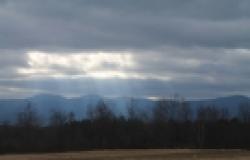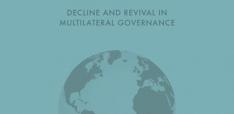The Closing Space of Democracy

In order to stop democracy drying up, it is necessary to understand what democratic backsliding looks like and how it takes shape.
Illiberalism is rising and democratic norms are weakening around the world. This trend has focused the attention of scholars and policymakers on democratic backsliding or “closing space,” which a recent USAID report defines as “a change in a combination of competitive electoral procedures, civil and political liberties, and accountability” that “occurs through a series of discrete changes in the rules and informal procedures that shape those elections, rights, and accountability.” For policymakers, implementers and activists, closing space is a phenomenon that hinders development, democracy, and governance work and interrupts a once-expanding global norm of individual freedom.
In order to stem the tide of backsliding – or simply to maintain the operational status quo – donors, implementers and domestic actors in closing spaces must fully understand the multidimensional process of closing space. Ideally, these actors should be equipped with early-warning signs that portend growing repressive political trends. Yet, as the recent history of Venezuela shows, neither domestic opposition nor the international community are always able to push back on the retreat from democracy. This is due at least in part to an inadequate understanding of the indicators and process of backsliding, which delays countervailing action as the process unfolds.
Academic and policy communities have often focused their attention on the causes of backsliding at the expense of understanding the process. Of course, understanding the roots of closing space is valuable. But far less attention has been paid to the sequencing, effects, and motivations of closing that can occur in full and partial democracies.
Democratic backsliding is not a unidimensional or linear process, but rather a series of discrete and interconnected events and actions that often proceed undetected by citizens and observers. In an attempt to confront this challenge, the International Republican Institute (IRI) has developed an analytical framework that captures the various facets of backsliding, which we believe will help implementers to better identify warning signs and craft mitigating responses in countries experiencing democratic regression.
Our approach expands upon the focus of closing space researchers – which has often centered on political opposition and civil society groups – to include five additional categories: economic nationalization, digital suppression, media control and manipulation, ideational and cultural control, and the suppression of individual rights. This framework (developed as part of a USAID-funded research project) highlights the extent to which backsliding is a multidimensional and interactive process, comprised of diverse tactics that target an array of democratic actors, opening up possibilities for improved engagement by implementers and more effective interventions.
As an example of how this framework may be used to illuminate the closing process, consider the case of Venezuela. Over the course of Venezuela’s 20-year long regression from democracy to authoritarianism, the attention of policymakers tended to focus on the most visible forms of political backsliding, such as unfair elections, at the expense of other interwoven elements that hastened the backsliding process.
Following the framework for understanding closing spaces, Venezuela’s backsliding process was marked by the following key developments: high tariffs and burdensome regulations restricted the development of an independent entrepreneurial class; websites were banned and activists imprisoned for posting YouTube videos criticizing the ruling party; the government was legally empowered to arrest adversarial media owners or journalists; intellectuals and other cultural leaders have been subjected to state harassment for expressing views that challenge the government; and protesters have been subject to arbitrary arrest based on ever-more expansive laws empowering the state to maintain law and order.
How can these guidelines help implementers? First, by developing early warning signs of closing space, implementers will be better positioned to support local actors before situations reach a crisis point. Additionally, a more holistic understanding of backsliding can help implementers craft programmatic responses that can support the efforts of grassroots actors and opposition groups who typically become the targets of closure.
Existing resources are often too narrowly defined for implementers to assess, address and adapt to problems facing diverse local beneficiaries under conditions of democratic backsliding. By understanding the intersectionality of tactics, perpetrators and targets, policymakers and democracy and governance implementers can adapt their response to rapidly changing conditions on the ground.
David Sands is a Program Director in the Middle East and North Africa division at the International Republican Institute, where he specializes in issues of closing space. Geoffrey Macdonald is the Principal Researcher for Democracy and Governance at the International Republican Institute.
Image Credit: Andy Arthur via Flickr (CC BY 2.0)



